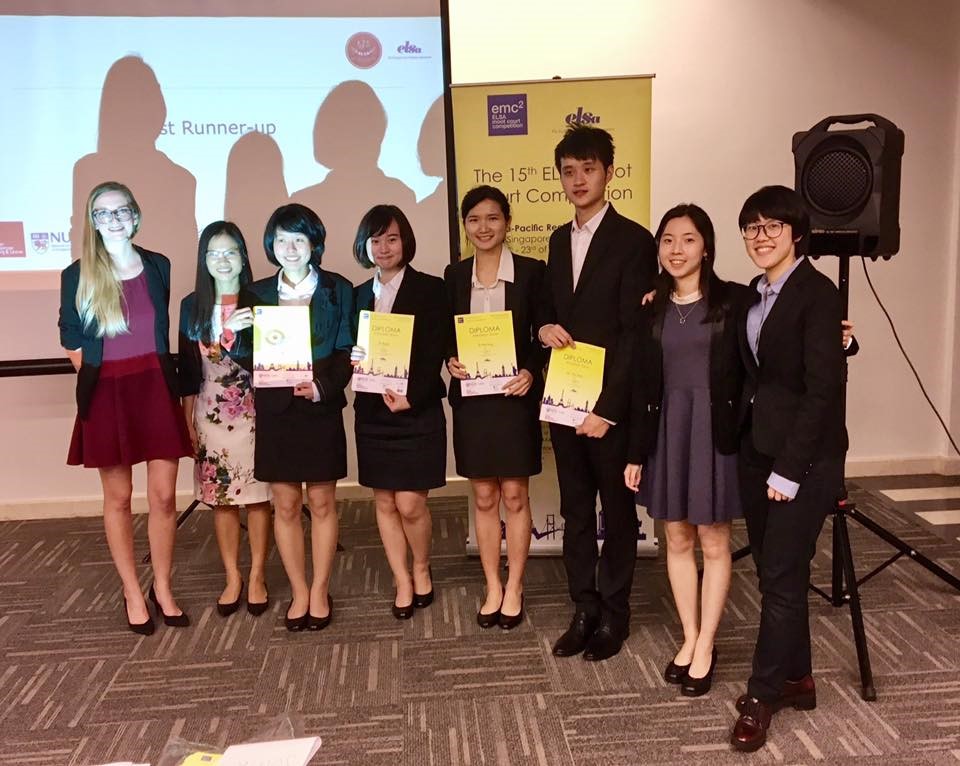
Introduction of the 2016/2017 ELSA Moot Court Competition on WTO Law
ELSA Moot Court Competition is a simulated hearing of the WTO dispute settlement system held by the European Law Students’ Association annually. Participants from all over the world are separated into several regional rounds, and the best 20 teams out of these regional rounds will qualify for the Final Oral Round which takes place at the WTO Headquarters in Geneva, Switzerland. This year, the Asia-Pacific regional round was held in Singapore, Singapore on February 19th to 23rd. The Final Oral Round was held from June 7th to 10th, 2017 in Geneva, Switzerland.
The 2016-2017 NTU team included four team members, Ko-Ying Chang, Yu-Ting Yu, Nien-Han Chang, and Wei-Chen Hsieh, and two student coaches, Ning Hsu, and Li-Hsuan Wu. Professors Tsai-Yu Lin and Yueh-Ping (Alex) Yang from the Asian Center for WTO & International Health Law and Policy served as faculty advisors.
The fictitious case of this year involves the following issues:
(1) Under GATT Art. XI and XXIV:(b), the issues are whether the BOP Quotas are a violation of GATT Art. XI and are permissible trade barriers under Art. XXIV:8(b) and whether it is too trade-restrictive to be necessary.
(2) Under GATT Art. XIII:1 and XIII:5, the issues are whether the TRQ Provision is a tariff quota, whether the agricultural products from CHIMEHA FTA parties and those from others are “like products”, and whether imports of like products are “similarly restricted” as the reduction of TRQs applies to CHEMEHA FTA parties, excluding other Members the access to favorable TRQ regime.
(3) Under GATT Art. I:1, the issues are whether the S&DT Provision, as an import duty exemption to Haito is an advantage, whether the imports from Haito and those from other Members are “like products”, whether such advantage is accorded unconditionally to other Members and whether the the S&DT Provision can be justified under the Enabling Clause.
(4) Under GATT Art. I:1, the issues are whether the Environment Provision is an advantage, whether the green goods from CHIMEHA FTA, Green accredited parties and those from others are “like products” and whether it fails to accord the advantage unconditionally to other Members.
(5) Under Anti-dumping Agreement Art. 9.2, the issue is the consistency of the Anti-Dumping Provision and whether the violation can be justified under GATT Art. XXIV.
In this year’s Asia-Pacific regional round, we won the 1st place and was awarded the Best Written Submission for Complainant. In addition to the team’s achievement, one of our oralists was awarded the Best Oralist of the Preliminary Round of the East Asia Regional Round.
